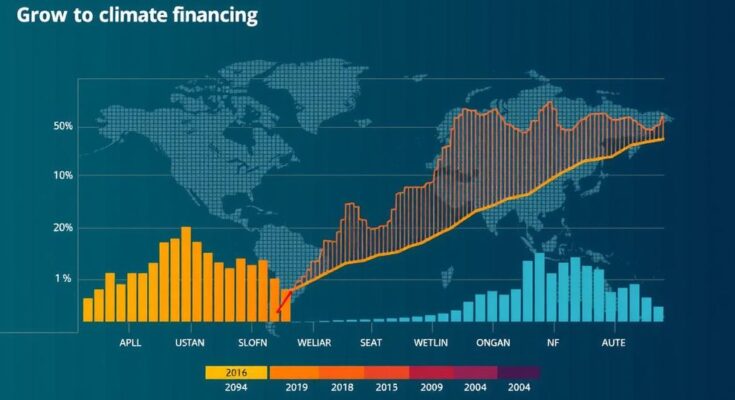Christine Lagarde, ECB President, cautioned that the funding required for climate adaptation has greatly increased, being 50% higher than previous estimates and nearly 18 times the current commitments. She noted that the energy transition demands a threefold increase in clean energy investments by 2030, with a total of $11.7 trillion needed annually for climate mitigation by 2035. Lagarde emphasized the rising costs of inaction as demonstrated by recent extreme weather events.
Christine Lagarde, President of the European Central Bank (ECB), has highlighted a significant and growing disparity between the funding required to address the climate crisis and the commitments currently made. In her remarks during the COP29 climate conference in Baku, she indicated that the necessary financing to combat climate change is now estimated to be 50 percent higher than previous projections and may be as much as 18 times greater than current pledges. Lagarde emphasized the urgency of this concern, stating that to achieve effective energy transition, investments in clean energy must increase threefold by 2030. Lagarde referenced statistics from the United Nations Environment Programme (UNEP), which posits that approximately $11.7 trillion must be allocated annually towards climate change mitigation efforts by 2035. This level of investment corresponds to roughly ten percent of the global economic output. She underscored the dire consequences of failing to adequately address climate change, citing recent catastrophic weather events, such as severe flooding in Spain and intense storms in North America, which exemplify the escalating costs of inaction.
Climate change poses a substantial risk to global economies, ecosystems, and communities, necessitating immediate and substantial action. The disparities in climate financing underscore the challenges faced by developing nations which often lack the resources to implement necessary adaptation strategies. As climate-related disasters worsen, the call for enhanced funding mechanisms becomes increasingly urgent. Events like COP29 aim to unite countries in tackling these challenges by fostering agreements that ensure financial support for climate action, particularly for the most vulnerable nations affected by climate impacts.
In summary, the warnings by Christine Lagarde underscore the escalating urgency of addressing the climate financing gap. The data indicate that the financial needs are far exceeding existing commitments, necessitating tripled investments in clean energy by 2030 and substantial annual spending to meet international climate agreements. The international community, particularly wealthier nations, must act decisively to support developing countries in their fight against climate change, as articulated by both Lagarde and UN Secretary General Antonio Guterres.
Original Source: www.barrons.com




